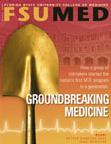• The Interdisciplinary Medical Sciences (IMS) Degree Program will have Drop/Add Week Walk-In Hours from 8:00 am to 4:00 pm daily due to high student volume. Academic advisors will not be taking appointments during the week of Monday, January 6 – Thursday, January 9. Please consult the IMS Announcement’s Module on the IMS Homepage for the latest information on Drop/Add procedures. We will be responding to email as time allows.
Chemistry:
• ADD a Course (lecture or lab): Attend first day of class and instructor will provide information on how to be added to the course if seats become available.
• NOTE: check student central when drop/add opens, January 4th - all available seats will be shown. To see more information regarding the drop/add schedule please click here.
Biology:
• ADD a Course (lecture or lab): Attend first day of class and instructor will provide information on how to be added to the course if seats become available.
• NOTE: check student central when drop/add opens, January 4th - all available seats will be shown. To see more information regarding the drop/add schedule please click here.
English and Math:
• Any student wishing to drop a Freshman Writing course (ENC 1101, ENC 2135) or a Mathematics course (MAC 1105, MAC 1140, MAC 1114, MAC 2311, MAC 2312 or MAC 2313), will need to contact the Division of Undergraduate Studies. The system will allow you to swap these courses for similar courses, but will not allow you to drop them from your schedule. If you wish to drop one of these courses during the drop/add period or during the semester, please contact the Division of Undergraduate Studies located at the stadium A3300 University Center (850) 644-2451 or dswain@fsu.edu.
Upper Division Elective Courses
- Any upper division student having trouble adding an upper division elective course from the IMS approved science or non-science list posted on our Resources Webpage should email our office at IMSadvising@med.fsu.edu.
AP/IB/AICE Scores:
If you took the test to receive AP/IB/AICE credit during high school, you must send those scores to FSU. Scores are not automatically sent from your high school. If you do not see your scores on your student account and you have already sent them, you will need to reach out to the Registrar’s Office. The Registrar’s Office can be reached by phone at 850-644-6200.
Departmental Prerequisite Checks:
Many higher-level science and math courses at FSU require prerequisite coursework. Departments such as Chemistry, Biology, and Mathematics are currently running prerequisite checks for their courses to ensure that all students enrolled have the correct prerequisite coursework completed. If you have taken a course over the summer as a transient student, or have received AP credit for a course that should cover a prerequisite, but you still receive communication that you will be dropped to due non-prerequisites, you will need to reach out to that department directly and provide proof that you’ve completed the necessary prerequisite course(s). You’ll need to show them an unofficial transcript or AP/IB score report with the grade and see if they can work with you to remain in your course.
Fall 2019 Transient Students:
If you were a transient student over the fall at another institution, you need to have your final transcript sent to FSU for processing. To do that, you’ll need to visit the Registrar’s office at the school you attended this fall and fill out a transcript request form. Some offices have this form online, and some require you to fill out the form in person; you’ll need to check with them to find out which you need to do. You’ll need to request that a final, official transcript is sent to FSU to the Office of Admissions. Once the FSU Admissions staff receives the final transcript, they will post your final grades to your student account here at FSU.
Be sure you request a final transcript, to ensure it has your final, official grade. The transcript must come directly from the other institution for FSU to accept it.



